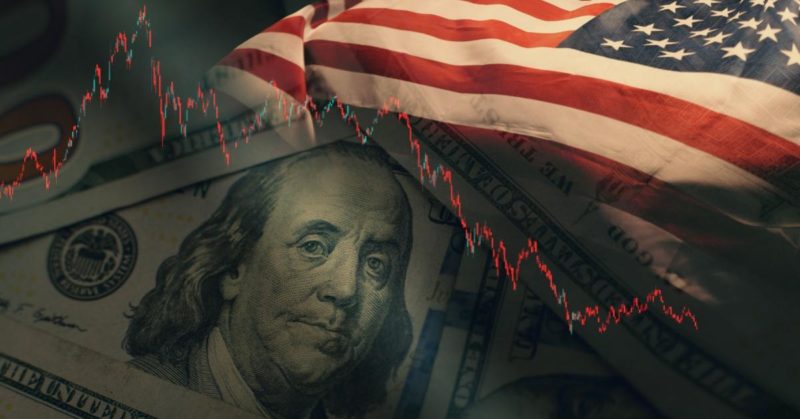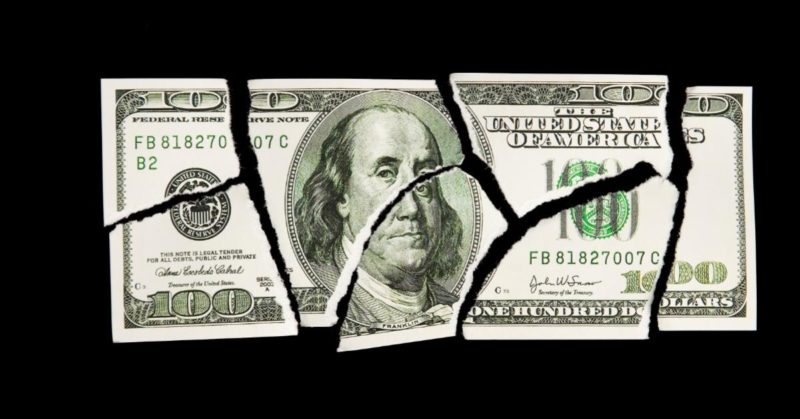Category Archive: 6b.) Mises.org
Has World War III Already Begun?
The recent actions of the Federal Reserve are reminiscent of central bank activities in wartime.
Original Article: "Has World War III Already Begun?"
Read More »
Read More »
Rothbard: Gun Regulation Explained
[A selection from For a New Liberty.]
If, as libertarians believe, every individual has the right to own his person and property, it then follows that he has the right to employ violence to defend himself against the violence of criminal aggressors. But for some odd reason, liberals have systematically tried to deprive innocent persons of the means for defending themselves against aggression. Despite the fact that the Second Amendment to the...
Read More »
Read More »
The Great Phony Disinflation Enters Its Finale
“La commedia è finita!” summarizes where the United States and Europe now stand in the Great Phony Postpandemic Disinflation. Why phony? Reported consumer price index (CPI) inflation has been falling in the US and Europe; but this has little to do with the advertised monetary tightening by the Federal Reserve, European Central Bank (ECB), and Bank of England.
Rather, the decline in reported CPI inflation is consistent with a natural downward rhythm...
Read More »
Read More »
What Marxists Say about “Market Socialism”
Following the collapse of the USSR, many socialists pinned their hopes upon the development of a "market socialism" that would be economically efficient and create equality. Marxist philosopher G.A. Cohen wisely dissented.
Original Article: "What Marxists Say about "Market Socialism""
Read More »
Read More »
The Coming Collapse of the Global Ponzi Scheme
It won’t be long before governments around the world, including the one in Washington, self-destruct.
Strong words, but anything less would be naïve.
As economist Herbert Stein once said, “If something cannot go on forever, it has a tendency to stop.” Case in point: fiat money political regimes. Interventionist economies of the West are in a fatal downward spiral, comparable to that of the Roman Empire in the second century, burdened with...
Read More »
Read More »
Progressives Have Corrupted Not Only Money, but Its History as Well
Social democrats are so desperate to cast off limits on government that they'll embrace anything that justifies their ambitions. So they invent theories of money that are very, very wrong.
Original Article: "Progressives Have Corrupted Not Only Money, but Its History as Well"
Read More »
Read More »
Even in Slave Economies, the Division of Labor Was Inescapable
Even under chattel slavery, inequality was still pervasive. Carpenters, sugar boilers, blacksmiths, cabinetmakers, and rum distillers constituted an elite core of slaves.
Original Article: "Even in Slave Economies, the Division of Labor Was Inescapable"
Read More »
Read More »
Hail the Speculators! They Take the Necessary Economic Risks in Our Economy
Speculators are reviled in the media and by politicians and academics. Yet the speculators are the ones taking risks to ensure the rest of us can have more economic certainty.
Original Article: "Hail the Speculators! They Take the Necessary Economic Risks in Our Economy"
Read More »
Read More »
Crash Landing
Will we get a soft landing or a hard landing in the economy? Or, should we hope for a crash landing? Mark Thornton explains.
See also "Soft Landing? Not Likely" featuring Bob Murphy and Jonathan Newman on the Human Action Podcast: Mises.org/HAP407
Be sure to follow Minor Issues at Mises.org/MinorIssues.
Read More »
Read More »
No, Small Countries Are Not at an Economic Disadvantage
Some analysts contend that size can be a deterrent to economic prosperity, so as a result, small states are particularly vulnerable to economic and environmental shocks. Usually, small states are discussed in light of their limitations and challenges. Even leaders of small countries earnestly paint size as an obstacle to future progress. The idea that smallness is an impediment to be overcome has become gospel in some quarters.
Caribbean leaders...
Read More »
Read More »
Dollar Hegemony Is Ending Due to Geopolitical Changes
Since the Bretton Woods Agreement in 1944, the dollar has been the world’s preferred reserve currency—the major trading nations of the world were willing to hold dollars in vast amounts to satisfy their need for a readily accepted worldwide payment medium. Even when, in 1971, the United States violated its solemn promise to redeem its dollars for gold at thirty-five dollars per ounce, nations were still willing to hold dollars.
Germany Shies Away...
Read More »
Read More »
The State Protects Itself While Crime against Ordinary People Surges
In all the media and regime frenzy over the Janaury 6 riots and the Pentagon Leaker in recent months, it is interesting to examine the contrast between how the regime treats "crimes" against its own interests, and real crime committed against ordinary private citizens.
Witness, for example, how the Biden administration and corporate media have treated the January 6 riot as if it were some kind of military coup, demanding that draconian...
Read More »
Read More »
Beyond Crisis: The Ratchet Effect and the Erosion of Liberty
The Constitution “is not a suicide pact,” said Justice Arthur Goldberg in the court’s opinion in the 1963 Supreme Court case of Kennedy v. Mendoza-Martinez. His statement highlights a fundamental truth: in times of crisis, governments often feel compelled to take extraordinary measures to protect their citizens and maintain order.
However, this desire to act swiftly and decisively can lead down a perilous path where the expansion of government...
Read More »
Read More »
They Didn’t Listen: The Reality of Hayek’s Bestseller
In 1944, F.A. Hayek's best-selling book, The Road to Serfdom, warned the West that the "free" nations would lose their freedom as government expanded. He was right.
Original Article: "They Didn't Listen: The Reality of Hayek’s Bestseller"
Read More »
Read More »
A Recession Coming in 2023? With Dr. Murray Sabrin
On this episode of Good Money with Tho Bishop, Dr. Murray Sabrin joins the show. Dr. Sabrin shares his story of how he became an Austrian economist and discusses his analysis predicting a recession later in the year. Tho and Dr. Sabrin also talk about this week's anniversary of Nixon closing the gold window.
Join Dr. Sabrin in November for a Mises Circle in Ft. Meyers, FL on The White House, the Fed, and the Economy. Use promo code Tampa23 for $10...
Read More »
Read More »
Saving Marxism from the Labor Theory of Value: It Is Still Bad Theory
Capitalism—Its Nature and Its Replacement: Buddhist and Marxist Insightsby Graham PriestRoutledge, 2021; 312 pp.
The title of this book seems at first sight puzzling: what has Buddhism to do with Marxism? When we learn that the author accepts Karl Marx’s analysis of capitalism and also wishes to replace capitalism with a type of socialism, we might be tempted to toss the book aside. It would be a mistake to do so. The author is a distinguished...
Read More »
Read More »
Is the Fed Responsible for the Recent Surge and Fall in Price Inflation?
Jonathan Newman joins Bob to discuss the argument being put forth by Alan Blinder, James Galbraith, and other progressive economists, who claim that the Federal Reserve's rate hikes couldn't possibly be responsible for the quelling of consumer price inflation.
Jonathan and Bob stress the important role of expectations as a "transmission mechanism" from Fed policy to impacts on prices.
Galbraith's Article on the Fed's 'Soft Landing':...
Read More »
Read More »
A Higher Minimum Wage Won’t Improve Life in Pennsylvania
Forcing the minimum wage above the real market wage causes more unemployment. Small businesses suffer from these mandates as do the least productive workers.
Original Article: "A Higher Minimum Wage Won't Improve Life in Pennsylvania"
Read More »
Read More »
What Mises Really Thought about Fascism
It cannot be denied that Fascism and similar movements aiming at the establishment of dictatorships are full of the best intentions and that their intervention has, for the moment, saved European civilization. The merit that Fascism has thereby won for itself will live on eternally in history.
—Ludwig von Mises, Liberalism: In the Classical Tradition
Mises controversially stated this quote in his book Liberalism: In the Classical Tradition. This...
Read More »
Read More »
Monetary Inflation Won’t Create Economic Growth
When it comes to matters of money and banking, all practical political issues ultimately hinge on one central question: can one improve or deteriorate the state of an economy by increasing or decreasing the quantity of money?1
Aristotle said that money was no part of the wealth of a nation because it was simply a medium of exchange in inter-regional trade, and the authority of his opinion thoroughly marked medieval thought on money. Scholastic...
Read More »
Read More »




























